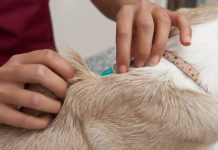Choosing the right food for your new puppy is one of the most important decisions you’ll make as a pet parent. Not only does it lay the foundation for their growth and development, but it also plays a crucial role in bolstering their immune system. Just like human babies, puppies are especially vulnerable as their bodies are still developing, and a strong immune system is essential to ward off illnesses and ensure they thrive. In this guide, we’ll walk you through the key factors to consider when selecting puppy food that will help nurture a robust immune system, setting your furry friend up for a lifetime of health and happiness. With the right knowledge and a little bit of love, you can ensure your puppy gets the best start in life.
Understanding Essential Nutrients for Your Puppys Immune System
When it comes to supporting your puppy’s immune system, understanding the role of essential nutrients is key. Puppies require a balanced diet that provides a mix of vitamins, minerals, and other nutrients to help their bodies fend off illnesses and grow strong. Here’s a closer look at some crucial components:
- Proteins: Proteins are the building blocks of life and are vital for the development of strong tissues and a robust immune response. Look for puppy foods that list high-quality animal proteins as the first ingredient.
- Omega-3 Fatty Acids: These healthy fats support brain development and enhance immune function. Ingredients like fish oil or flaxseed are excellent sources.
- Antioxidants: Vitamins such as A, C, and E are antioxidants that help protect your puppy’s cells from damage. Fruits and vegetables like blueberries, carrots, and spinach are rich in these nutrients.
- Probiotics: These beneficial bacteria support gut health, which is closely linked to immune health. Foods fortified with probiotics can help maintain a healthy digestive tract.
- Minerals: Essential minerals such as zinc and selenium play a role in immune system function and can be found in balanced puppy diets.
By selecting a puppy food that includes these essential nutrients, you’re not only nurturing your furry friend’s growth but also laying the foundation for a lifetime of good health. Always consult with your veterinarian to ensure that your puppy’s diet meets their specific needs.
Identifying High-Quality Ingredients for Optimal Health
When it comes to nurturing your puppy’s immune system, selecting the right food is crucial. A high-quality diet can lay the foundation for robust health and longevity. Look for puppy food that includes whole proteins like chicken, beef, or fish as the primary ingredient. These proteins are essential for developing a strong immune system and supporting overall growth.
In addition to proteins, consider foods that contain essential fatty acids, such as Omega-3 and Omega-6, which help reduce inflammation and promote healthy skin and coat. Foods rich in antioxidants, like blueberries and spinach, can protect your puppy’s cells from damage and boost their immune response. Be sure to check for added probiotics, which can aid digestion and enhance immune function. Remember, a well-balanced blend of vitamins and minerals is key to supporting your puppy’s immune health, so look for foods fortified with nutrients like vitamin E, vitamin C, and zinc.
- Whole Proteins: Chicken, beef, or fish as the first ingredient.
- Essential Fatty Acids: Omega-3 and Omega-6.
- Antioxidants: Blueberries, spinach.
- Probiotics: For digestive health.
- Vitamins and Minerals: Vitamin E, vitamin C, zinc.

Tailoring Puppy Food Choices to Breed and Size Needs
Understanding the unique nutritional requirements of your puppy’s breed and size is crucial for ensuring optimal immune health. Small breed puppies typically have faster metabolisms and require calorie-dense foods to sustain their energy levels. Look for kibbles that are rich in proteins and fats, ensuring they are formulated to support their rapid growth and active lifestyle. On the other hand, large breed puppies grow at a slower rate and benefit from a diet that includes balanced calcium and phosphorus levels to support healthy bone development and prevent joint issues.
When selecting puppy food, consider these key factors:
- Breed-specific formulations: Some brands offer tailored recipes for specific breeds, taking into account common health concerns and nutritional needs.
- Size-appropriate kibble: Ensure the kibble size is suitable for your puppy’s mouth, aiding in digestion and dental health.
- Immune-boosting ingredients: Opt for foods enriched with antioxidants, omega fatty acids, and vitamins C and E, which support a robust immune system.

Expert Tips on Transitioning to a New Diet Safely
Transitioning your puppy to a new diet is an exciting journey, but it’s important to approach it with care to ensure your furry friend stays healthy and happy. Here are some expert tips to guide you through this process safely:
- Introduce Gradually: Mix a small amount of the new food with your puppy’s current diet, gradually increasing the proportion of new food over 7-10 days. This helps prevent digestive upset.
- Monitor Reactions: Keep an eye on your puppy’s stool and overall behavior. Any signs of digestive issues, such as diarrhea or vomiting, may indicate a need to slow down the transition.
- Stay Consistent: Puppies thrive on routine. Feed them at the same times each day and in the same place to provide a sense of stability.
- Hydration is Key: Ensure your puppy has access to fresh water at all times. Hydration supports their immune system and helps with digestion.
- Consult Your Vet: Before making any dietary changes, it’s always wise to consult with your veterinarian. They can offer personalized advice based on your puppy’s specific health needs.
By following these steps, you can help your puppy adjust to their new diet smoothly, setting them up for a lifetime of robust immune health and vitality.
















